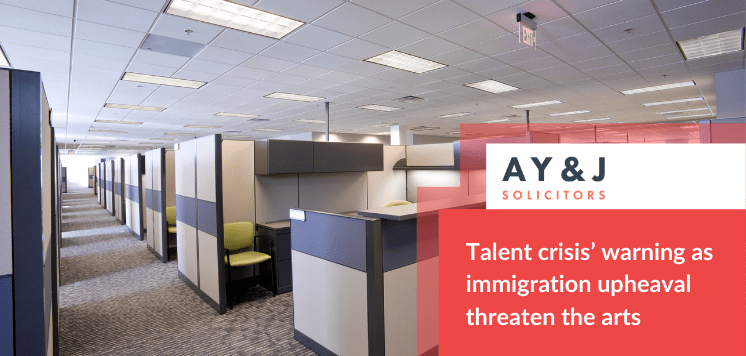The UK’s thriving tech industry – which already has a desperate shortage of skilled workers – could be on the brink of a new crisis, according to a top immigration expert.
A host of sectors are crying out for professionals, with IT business analysts, architects and systems designers as well as programmers and software development professionals and web designers all making it onto the Government’s official ‘shortage list’ – meaning a green light has been given to recruit from abroad.
However, with big changes to the nation’s immigration procedure just weeks away with the end of the Brexit transition process, there could be chaos as employers may find themselves unable to recruit professionals internationally to help fill these positions.
Recent research shows that only two per cent of British companies have registered to employ overseas workers when the new changes come in on January 1st – which means they will be restricted from access to the rich pool of foreign skilled personnel after that date.
Mr Yash Dubal, director of London-based A Y & J Solicitors and an expert on Immigration and Visa law, warns there is no time to lose to prepare for the new regulations.
He said, “This demand for highly skilled tech workers is only going to grow – and fast. The World Economic Forum has already predicted that by 2022, these digital industries will generate 133 million new jobs worldwide. Here in the UK, we will be competing with the rest of the world to lure the cream of this talent to our shores. The fact that many vital digital roles have now made it onto the shortage list is worrying and unless this demand for professionals with these highly sought-after digital skills can be met, it will hold British businesses back from economic growth.”
And Mr Dubal says the lack of preparedness for the new immigration regulations will harm tech businesses.
He adds, “Industry leaders in these sectors have always relied on being able to recruit the best talent from across the world. So it’s shocking to me that so few businesses seem aware of these rules. My advice would be to make preparations now to make sure the UK’s digital sector continues to thrive.”
UK employers wishing to hire skilled migrants must be registered on the Government visa sponsor scheme when the new immigration rules come into effect. Currently the scheme only applies to workers from outside Europe but after January 1st, 2021, all overseas workers will require a visa under the new Points-Based Immigration System.
Worryingly, Mr Dubal, believes that not enough is being done by the government to raise awareness and he says that many employers are unaware of the requirement to register.
He said, “While there has been a campaign about the new points-based system, hardly any of it has been aimed at employers to tell them that they need to register if they plan to hire skilled workers from abroad next year.”
Mr Dubal also believes that the current sponsor registration system needs to be overhauled to make it easier and cheaper for British employers to recruit skilled migrants and bridge the skills gap. After January 1st, businesses must pay an Immigration Skill Charge (ISC) of £1,000 per year for each skilled overseas worker they employ.
He adds, “The Home Office does not make it easy and there seems to be a policy of discouragement. British companies are facing personnel shortages. The problem can be addressed by hiring from abroad, where there is a huge and highly skilled pool to pick from. It makes good sense to make this hiring process easy.”









